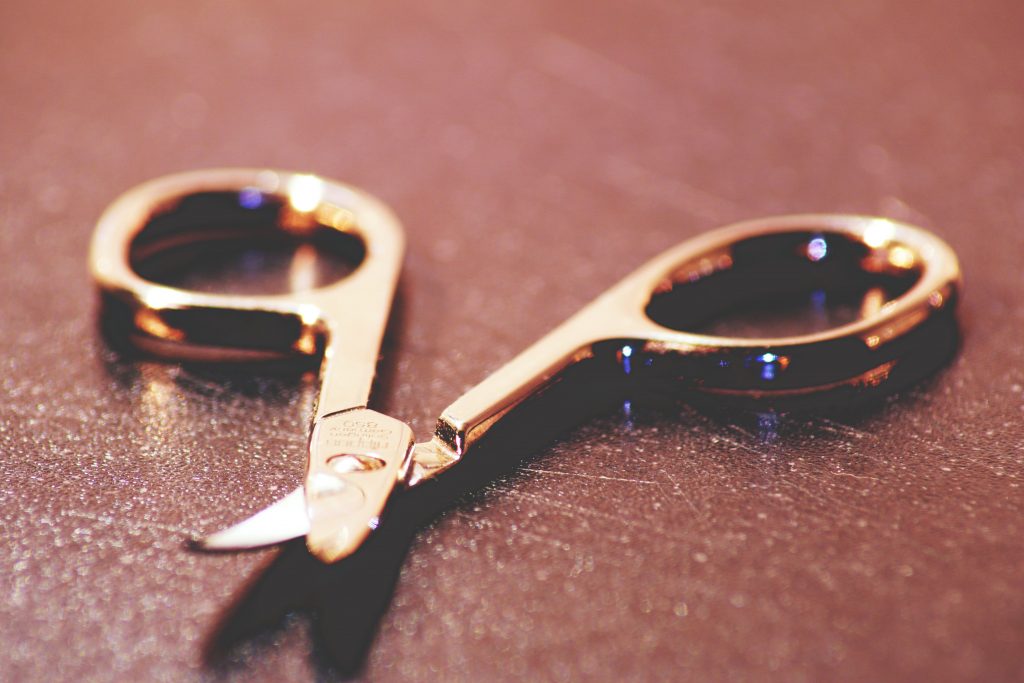Have you ever experienced a bad day?
It’s the kind of day when someone had a fight with their spouse, a student got their research proposal rejected, or a child got bullied at school. Disappointment, anger, sadness, shame, and other negative emotions come to life accompanying these bitter experiences. We feel defeated, yet tried our best to keep our heads up.
Each of us experience the bad day differently. Some people choose to solve the problem right away; it might include conforming to the people who caused the negative experiences. Some people prefer to just accept the bitter truth, forget it, and continue with their life like nothing has ever happened. Some people do various activities to comfort themselves. For example, have you ever feel the craving of certain foods like ice-cream or chocolate in the time of stress? Or, perhaps, the urge to exercise intensively after experiencing a bad day? Yes indeed, some of us do these kind of comforting activities to help us clear our minds and release the negative emotions.
We know very well that the foods we eat or the sweats after gym session won’t magically solve the problems. Despite of that, we do it because it makes us feel better. It gives us a space to be relaxed to not think about our problems for a while.
Is it limited to food craving or sport? Certainly not. In fact, some people choose to do self-harm as a way to cope with these bad experiences.
Self harm helps them to shift their emotional baggage to a physical wound. When a problem felt too heavy to be carried on, the pain of self-harm creates an illusion of serenity. With each cut or wound, the physical pain overpowers the emotional ones. At least they can avoid those emotional pains for a while. The cutting, bruises, and wounds keep them alive. It’s their attempt of self defense. It keeps them going.
Psychology Today defined self harm as “the deliberate infliction of damage to your own body and includes cutting, burning, and other forms of injury.” Self harm essentially is a harmful act both physically and mentally. It’s not just the blood and bruise on the body, but the brain and heart were affected even more than the body itself. Every time the person self-harm, the brain release a chemical called endorphins, which makes people feel happy and calm. It is the same chemical released by the brain when people are using drugs or smoke. The darker side is, just like drug abuse or smoking, self harm can become addictive.
Self harm is still a taboo topic to be discussed within the Muslim community. We all know that it’s not the right thing to do, but how many of us address this issue maturely? There are many kinds of other dangerous actions such as riba’ (usury), adultery, etc. And we address those issues seriously: many speakers talk about it, parents communicate with their kids about it and protect them against it, we offer preventions and solutions for those problems. But how about self harm?
There is this trend of looking down of people who is suffering mental health problems, including depression and self harm. People who self harm is seen as ‘weak’ and ‘disturbing’. Instead of offering help, many people choose to distance themselves from self-harming people and judge them.
The people who use self-harm as a coping method had suffered the negative emotions long before the judgment and harsh demeanor come to them when people finally discovered their self harming activities. It hurts even more. They feel the pain, they feel the harshness of every single eye that looked down upon them. They know that it’s not the best solution of their problem. They too, were sad.
So, how can we address with this self-harming issue wisely? There is this one hadith which wonderfully describe the behaviour of our Prophet Muhammad saw when dealing with people who had a bitter experience.
Anas said, “The Prophet, may Allah bless him and grant him peace, visited us. I had a young brother who used the kunya of Abu ‘Umayr. He had a sparrow which he used to play with it and it had died. The Prophet, may Allah bless him and grant him peace, came it and saw that he was sad. He asked, ‘What is wrong with him?’ He was told, ‘His sparrow has died.’ The Prophet said, ‘Abu ‘Umayr, what has happened to the little sparrow?'” (Bukhari, al-Adab al-Mufrad, 847)
Abu ‘Umayr was a child, his problem might seem unimportant for most adults, but Prophet Muhammad saw offered empathy to him. Did Prophet saw ignore the child’s sorrow? Did Prophet saw underestimate his pain? Did Prophet saw said something similar with ‘Don’t overreact, there are many other people with bigger problems than you’?
The answer is obviously no. Instead, our noble Prophet saw recognized the child’s sorrow, lent him an ear to listen, provided him comfort, and tried to cheer him up.
Because essentially, everyone experienced things differently. We might be strong and tough in facing some issues, but for some others, those issues absolutely bring them down. We do not have to feel the exact same way with people in order to be emphatic and helpful. Like the story above, losing a sparrow might seem like a small problem for adult who do not have pets. But for Abu ‘Umayr, the experience was very devastating to him. Our Prophet saw understood this and he tried his best to provide comfort for the mourning child.
Most of the times, the people who self-harm hurt themselves because they cannot release the negative emotions properly. They might be fearful in expressing their emotions. Rather than making the life of people more miserable, we can be the source of comfort and happiness to them. Spread salaam and smile. Reach out to people and ask about their day. Be a good listener. Lend a hand.
Abu Hurairah r.a narrated that Rasulullah saw said: “Whoever relieves a Muslim of a burden from the burdens of the world, Allah will relieve him of a burden from the burdens on the Day of Judgement. And whoever helps ease a difficulty in the world, Allah will grant him ease from a difficulty in the world and in the Hereafter. And whoever covers (the faults of) a Muslim, Allah will cover (his faults) for him in the world and the Hereafter. And Allah is engaged in helping the worshipper as long as the worshipper is engaged in helping his brother.” (Sahih, Jami’ at-Tirmidhi 1930)
To the Strong Soul Within
“And do not kill yourselves. Surely, God is Most Merciful to you.” (Surah An-Nisa : 49)
He subhanahu wa ta’ala is the Most Merciful. He continuously gives us abundant blessings, including that spark which helps you to face your problem. Yes, that spark called ‘strength’.
Know that you are strong. You have been through the difficult situations so many times and you survived, you made it. You are capable any challenges and problems that come to you, and most importantly, you are not alone. We’re here for you, and Allah subhanahu wa ta’ala will always be there for you.
In order to lead a better life, we must start with is loving ourselves. It’s to nourish ourselves physically, mentally, and spiritually. Hurting ourselves won’t make anything better, it only provides an instant distraction and false relief. It’s definitely not something that Allah ‘azza wa jall, the One who love us the most, would like to see us doing it. Our goal is to solve our problems and be happy right? How can we achieve it if we continue to commit something which displeases Allah, the One who will help us in every matter in our life?
There are so many better ways to cope with our problems. The most important thing is to turn back to Allah subhanahu wa ta’ala. Realize that He’s the One who’s in control of everything. No matter how bad the situation is, He’s capable of turning it into wonderful ones. Start with fixing our relationships with Him. Khushoo’ prayer, recitation of Qur’aan, and abundant dhikr will help in shaa Allah.
“Unquestionably, by the remembrance of Allah do the hearts find rest.” (Surah Ar-Ra’d : 28)
Try to do positive things which makes you happy and energetic. Maybe you like cooking? There are many fun cooking channels on youtube and you can start experimenting new recipes with your siblings or friends. Or maybe that one sport you used to do as a child? Or maybe you like being creative with painting or crafting?
Find the people who accept and understand you. It might be your family, friends, or counsellors.
Talking to them about your problems will help you regulate your own emotions. Spend more quality time with your loved ones.
Life can be tough. But always remember, that even in the darkest period, the storm shall pass. Have tawakkul, it will definitely get better in shaa Allah.
Sources:
Alderman, Tracy. (2009). Myths and Misconceptions of Self Injury: Part II. Retrieved from https://www.psychologytoday.com/us/blog/the-scarred-soul/200910/myths-and-misconceptions-self-injury-part-ii
HelpGuide. (n.d). Cutting and Self Harm. Retrieved from https://www.helpguide.org/articles/anxiety/cutting-and-self-harm.htm
Lohmann, R.C. (2017). Bleeding Away the Pain: the Ins and Outs of Self-Harm. Retrieved from https://health.usnews.com/wellness/for-parents/articles/2017-07-18/bleeding-away-the-pain-the-ins-and-outs-of-self-harm
Madiha, Sadaf. (2017). Anxiety & Self-Harm: How to Feel Better without Hurting Yourself. Retrieved from http://aboutislam.net/counseling/ask-the-counselor/youth-issues/anxiety-self-harm-how-to-feel-better-without-hurting-yourself/
Psychology Today. (n.d). Self-Harm. Retrieved from https://www.psychologytoday.com/us/basics/self-harm
Vibe, Your. (2016). Self-injury and suicide prevention in the Muslim community. Retrieved from https://themuslimvibe.com/muslim-lifestyle-matters/health/self-injury-and-suicide-prevention-in-the-muslim-community



